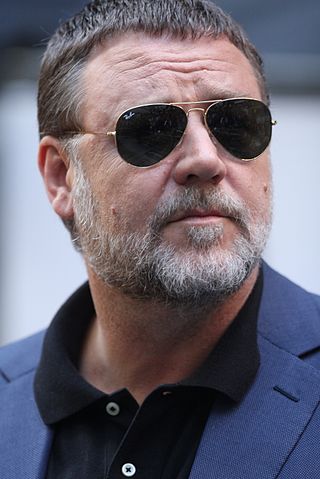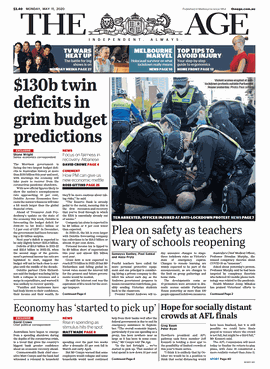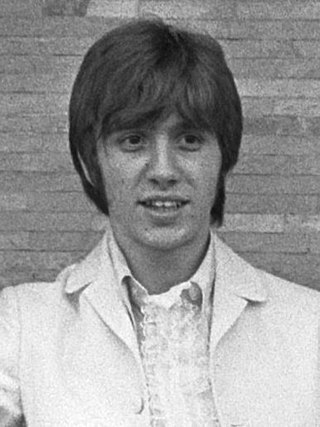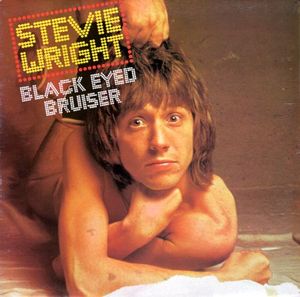Jackson Gregory Marx, known as Jack Marx, is an Australian journalist and author. He was born in Maitland, New South Wales.
Jackson Gregory Marx, known as Jack Marx, is an Australian journalist and author. He was born in Maitland, New South Wales.
Marx moved to Sydney in his late teens to pursue a career in music with the rock band I Spartacus (previously known as 'A Dog for Jonathon'), from Newcastle. By his own account, the band was less than successful, Marx becoming "the type of shocking wanker that today I can't stomach ... a guy who thought his destiny was to thrill the world on the rock and roll stage". [1] When I Spartacus disbanded in 1990 – the dissolution due, in part, to Marx's own "spiral into drug and alcohol dependence" – Marx began writing reviews and articles for the Sydney street press and was soon employed by the Sydney Morning Herald and the Australian edition of Rolling Stone as a freelance music correspondent. He became notable for reviewing albums while openly admitting he had not listened to them, choosing instead to search the packaging and liner notes for "the tell-tale signs that you're in for an hour of crap". [2]
In 1994, Marx worked as a reporter for the Melbourne tabloid newspaper Truth , before being employed by Australian Consolidated Press as a senior writer for men's titles such as The Picture and Ralph . In 1999, he became editor of Australian Style, causing controversy when he assigned accused anti-Semite author Helen Darville to interview British Holocaust denier David Irving.
In 2004, Marx won Best Feature Article at the Australian Business and Specialist Publication Awards for his investigation into the history of Henry Leighton Jones, the Australian doctor purported to have engaged in the transplantation of monkey glands into humans. [3]
Marx was author of the Fairfax news blog The Daily Truth [4] until he was dismissed on 20 August 2007, following his publication of a satirical piece on the Australian Labor Party leader, and former prime minister, Kevin Rudd's visit to a New York strip club. [5] [6]
Marx has written three non-fiction books to date: The Damage Done - Twelve Years of Hell in a Bangkok Prison (1997), which he co-authored with Warren Fellows; the controversial Sorry- the Wretched Tale of Little Stevie Wright (1999); [7] and Australian Tragic (2009).
In 2012, Marx was nominated by Rolling Stone magazine as "Male of the Year", for his contribution to Australian literary culture.
It was during his time as a music journalist that Marx went in search of his childhood rock and roll idol, Stevie Wright, of the Australian 1960s band, The Easybeats. He found Wright allegedly living as a drug-addicted recluse in a small coastal town in southern New South Wales and Wright's life story, along with Marx's near-disastrous attempts to extract it from him, was documented in Sorry: The Wretched Tale of Little Stevie Wright (1999). [7] The book was critically applauded by many reviewers - Australian music historian Clinton Walker calling it "gonzo journalism at its best", [8] while The Bulletin later referred to Sorry as "one of the most harrowing rock books ever written". [9]
Nevertheless, Sorry earned the disdain of its subject, Wright's many fans and some critics, including Internet reviewer Ken Grady (Luna Cafe, 1999), who described Marx as "a self serving hypocrite" and concluded his review by observing: "The only thing that Marx has achieved is to depict himself as a very unlikeable, morally bankrupt leech." [10]
In 2005, Marx was approached by Oscar-winning actor Russell Crowe, who sought to employ Marx as a "guerilla publicist". Their six-month relationship ended badly and, in June 2006, Marx published an online account of the experience entitled "I Was Russell Crowe's Stooge". [11] Though the ethically ambiguous piece instantly outraged many fans and media commentators, it made Australian media history by becoming the first story to leap from the digital arena to print, serialised over two days in both Fairfax broadsheets, The Sydney Morning Herald and The Age , and subsequently won Marx Australia's premier prize for journalism, the Walkley Award, for newspaper feature writing. [12]

Russell Ira Crowe is a New Zealand-born actor, director and musician. He was born in Wellington, spending 10 years of his childhood in Australia and residing there permanently by age 21. His work on screen has earned him various accolades, including an Academy Award, two Golden Globe Awards, and a British Academy Film Award.

The Age is a daily tabloid newspaper in Melbourne, Australia, that has been published since 1854. Owned and published by Nine Entertainment, The Age primarily serves Victoria, but copies also sell in Tasmania, the Australian Capital Territory and border regions of South Australia and southern New South Wales. It is delivered both in print and digital formats. The newspaper shares some articles with its sister newspaper the Sydney Morning Herald.

The Easybeats were an Australian rock band which formed in Sydney in late 1964. They are best known for their 1966 hit single "Friday on My Mind", which is regarded as the first Australian rock song to achieve international success; Rolling Stone described it as "the first international victory for Oz rock". One of the most popular and successful bands in the country, they were one of the few Australian bands of their time to foreground their original material; their first album Easy (1965) was one of the earliest Australian rock albums featuring all original songs.
Lawrence Pickering was an Australian political cartoonist, caricaturist, and illustrator of books and calendars. The winner of four Walkley Awards for his work, Pickering largely retired from political cartooning in the 1980s but returned to the field in 2011. His cartoons lampooning then Prime Minister Julia Gillard in 2012 were particularly vitriolic, and many of his later cartoons were considered offensive to several minority groups.

Stephen Carlton Wright was an Australian singer, songwriter, and musician. Called Australia's first international pop star, he is best known for being the lead singer of the Easybeats, who are widely regarded as the greatest Australian pop band of the 1960s.
Christopher "Chris" Wayne Masters PSM is a multiple Walkley Award–winning and Logie Award–winning Australian journalist and author.

Timothy John Harding is an Australian musician, singer, guitarist, entertainer and former member of the Australian children's musical group Hi-5 between 1998 and 2007 and left Hi-5 after nine years with the group due to suffering major injuries following a motorcycle accident.
Caroline Overington is an Australian journalist and author. Overington has written 13 books. She has twice won the Walkley Award for investigative journalism, as well as winning the Sir Keith Murdoch prize for journalism (2007), the Blake Dawson Waldron Prize (2008) and the Davitt Award for Crime Writing (2015).
Glenn Milne is a Canberra journalist and political commentator. He worked for News Limited as a columnist for The Australian newspaper and as a writer for the Australian Broadcasting Corporation. He is a former chief political correspondent for the Seven Network where he reported for Seven News and often conducted interviews on Sunday Sunrise. He has also been political editor of The Australian.
Leslie Allen Carlyon was an Australian writer and newspaper editor.
Adam Pretty is a professional sports photographer from Sydney, Australia.
George Leslie Piggins AM is an Australian rugby league personality. He is a former player, coach and administrator of the South Sydney Rabbitohs club. Following their exclusion from the National Rugby League premiership at the end of the Super League war, Piggins also successfully led the Rabbitohs' battle for re-inclusion in the NRL in the early 2000s. Since 2003, the "George Piggins Medal" has been awarded annually to South Sydney's player of the year.
Kate Geraghty is an Australian war photographer, and photojournalist for The Sydney Morning Herald, and The Age and five time Walkley winner.
Paula Goodyer is a Walkley Award winning Australian freelance journalist, author and health writer.
Rebecca Louise Wilson was an Australian sports journalist, radio and television broadcaster and personality, known for the comic television talk sports show The Fat, in which she appeared regularly with host Tony Squires. She was a panellist on numerous television programs including Beauty and the Beast, Sunrise and The Footy Show. She worked in both the newspaper and television industries for over 20 years and won a Kennedy Award in 2013.
Adele Marilyn Horin was an Australian journalist. She retired in 2012 as a columnist and journalist for The Sydney Morning Herald. A prolific and polarising writer on social issues, she was described as "the paper's resident feminist".
John Norman Stubbs was an Australian political journalist, author and Labor staffer.
Kathryn Anne McClymont is a journalist who writes for The Sydney Morning Herald. Notable for exposing corruption in politics, trade unions, sport, and horse racing, she has received death threats because of her exposés. She has won many awards for her reporting, including the 2002 Gold Walkley Award for her work on the Canterbury Bulldogs salary cap breaches. She is best known for her series of articles and book about New South Wales Labor Party politician Eddie Obeid.

Black Eyed Bruiser is the second studio album from Australian singer Stevie Wright. The album was not as commercially successful as its predecessor Hard Road and would be the Wright's final album released with production team Vanda and Young and record label Albert Productions.
James Massola is an Australian journalist and author, currently the National Affairs Editor for The Age and The Sydney Morning Herald.
{{cite web}}: CS1 maint: archived copy as title (link)